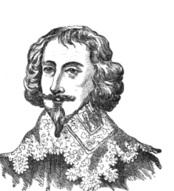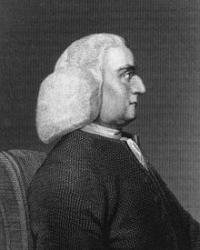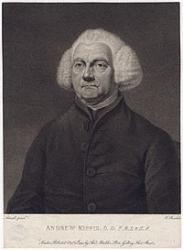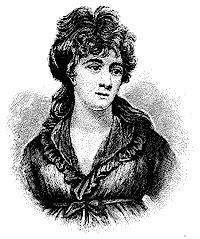Planning worship?
Check out our sister site, ZeteoSearch.org,
for 20+ additional resources related to your search.
- |
User Links
Person Results
‹ Return to hymnal




Export as CSV
George Sandys

1577 - 1643 Person Name: Sandys Hymnal Number: 117 Author of "Thou who dwellest enthroned above" in Christian Hymns for Public and Private Worship Sandys, George, son of Dr. Edwin Sandys, Archbishop of York, was born at Bishopthorpe Palace, York, in 1577, and educated at St. Mary Hall and Corpus Christi College, Oxford. For some years he devoted himself to travelling in Europe and Asia, and published in 1615 a curious account of his experiences. After visiting America, where he was for a time the Treasurer of the British Colony of Virginia, he became, on his return, a Gentleman of the Privy Chamber of Charles I. He died at Bexley Abbey, Kent, March 1643. His publications included his Traveller's Thanksgiving; the prose work on his travels, A Relation of a journey begun in 1610, &c, 1615; a translation of the Metamorphoses of Ovid; and Grotius's tragedy of Christ's Passion. His productions which most nearly concern hymnology were:—
(1) A Paraphrase upon the Psalmes of David, and upon the Hymns dispersed throughout the Old and New Testaments. London: at the Bell in St. Paul's Churchyard. MDCXXXVI.
(2) A Paraphrase upon the Divine Poems by George Sandys. London: at the Bell in St. Paul's Churchyard. M.DCXXXVIII. This volume contained the Paraphrase of the Psalms, paraphrases upon Job, Ecclesiastes, the Lamentations of Jeremiah, and the Songs collected out of the Old and New Testaments.
(3) His paraphrase of The Song of Solomon was published in 1642. The most available form of these works is the Rev. R. Hooper's reprint of Sandys's Poems, in Smith's Library of Old Authors.
A few only of Sandys's versions of the Psalms are found in modern hymnbooks, although they were set to music by Henry Lawes. His influence, however, upon later paraphrasers was considerable. The following, together with a few others annotated under their respective first lines, are in common use:—
1. How are the Gentiles all on fire. Ps. ii.
2. Lord, for Thee I daily cry. Ps. lxxxiv.
3. My God, Thy suppliant hear. Ps. lxxxvi.
4. Praise the Lord enthroned on high. Ps. cl.
5. Sing the Great Jehovah's praise. Ps. lxvi.
6. Thou, Lord, my witness art. Ps. cxxxi.
7. Thou who art [dwellest] enthroned above. Ps. xcii.
8. You, who dwell above the skies. Ps. cxlviii.
These paraphrases as in common use are in the form of centos.
--John Julian, Dictionary of Hymnology (1907)
====================
Sandys, G.., p. 994, i. Another cento from his Paraphrase upon the Psalmes of David, &c, 1638, as "Let God, the God of battles, rise" (Ps. lxviii.), is in the Hymn Book for Use in Wellington College, 1902.
--John Julian, Dictionary of Hymnology, New Supplement (1907)
George Sandys
Sebastian Streeter
1783 - 1867 Person Name: S. Streeter Hymnal Number: 694 Author of "Here in thy temple, Lord, we meet" in Christian Hymns for Public and Private Worship Streeter, Rev. Sebastian. (North Adams, Massachusetts, April 15, 1783--June 2, 1867, Newtonville, Mass.). A Universalist minister in New England, his longest pastorate was with the First Universalist Church, Boston, 1824-1854. He was one of the compilers of the hymn book Hymns composed by different authors, by order of the General Convention of Universalists in New England (1808), to which he contributed 46 hymns, and, with this brother, Russell Streeter, he compiled The New Hymn Book designed for Universalist Societies (Boston, 1829), which was widely used. Four of his hymns are included in Chursth Harmonies: New and Old, 1895:
1. A King shall reign in righteousness,
2. Here in thy temple, Lord, we meet,
3. Join every heart and every tongue,
4. What glorious tidings do I hear.
--Henry Wilder Foote, DNAH Archives
Sebastian Streeter
Nathaniel Cotton

1707 - 1788 Person Name: Cotton Hymnal Number: 454 Author of "If solid happiness we prize" in Christian Hymns for Public and Private Worship Cotton, Nathaniel, M.D., born in 1707, and educated for the medical profession at Leyden. Giving his attention more especially to brain diseases, he first assisted a physician, who devoted his attention to the insane, at Dunstable; and they erected a large Asylum at St. Albans. In 1763 the poet Cowper became one of his patients, and, on his recovery, conceived a warm attachment for his medical friend. Dr. Cotton died at St Albans, Aug. 2, 1788. Several of his hymns appeared from 1760 onwards in Dr. Dodd's Christian's Magazine, some signed "Dr. Cotton, St. Albans," some “N.," and some without signature. His poetical works were published posthumously:— Various Pieces in Verse and Prose, 2 vols., Lond., Dodsley, 1791; and Visions in Verse, &c, with Memoir, 1808. His hymns came into use through Collyer's Collection, 1812.
They are:—
1. Amid the various scenes of ill. Affliction Sanctified. From Various Pieces, &c, 1791.
2. Tell me, my soul, O tell me why. Sin the cause of fear. From Various Pieces, &c, 1791.
3. This is the day the Lord of Life. Sunday. From Various Pieces, &c, 1791.
4. While sorrow wrings my bleeding heart. Suffering. From his version of Ps. xiii., "Offended Majesty, how long ?" in the Christian's Magazine, Feb. 1761.
5. With fierce desire the hunted hart. Ps. 42.
Dr. Cotton's most widely known hymn is, “Affliction is a stormy deep," q. v. It is a port of No. 5.
--John Julian, Dictionary of Hymnology (1907)
Nathaniel Cotton
John Langford
1690 - 1790 Person Name: Langford Hymnal Number: 249 Author of "Now begin the heavenly theme" in Christian Hymns for Public and Private Worship Langford, John. The time and place of this person's birth are unknown. He is said to have been connected with the early Methodists, and then to have become a member of the Baptist church in Eagle Street, London. In 1765 he began to preach in a chapel called Blacksfields, in Gainsford Street, London, and in the following year was ordained pastor. There he remained for 12 years, then removed to Rose Lane, Ratcliff, and afterwards to a small place in Bunhill Row. But his imprudent conduct compelled him at length to give up preaching. He inherited considerable property, but squandered it in extravagance, and died in great wretchedness about 1790.
J. Langford published a few Sermons, and, in 1776, a collection of Hymns & Spiritual Songs, which reached a second edition The excellent and well-known hymn "Now begin the heavenly theme," has been ascribed to him. It is in his collection; but since, in the preface to his second edition, he tells us that he has marked his own hymns with an asterisk, and this one is not so marked, it is clearly not of his composition. [Rev. W. R. Stevenson, M.A.]
--John Julian, Dictionary of Hymnology (1907)
John Langford
Thomas Raffles
1788 - 1863 Person Name: Raffles Hymnal Number: 7 Author of "Blest hour, when mortal man retires" in Christian Hymns for Public and Private Worship Thomas Raffles was born in London in 1788. He studied at Homerton College, and in 1809 became pastor of a Congregational society at Hammersmith. In 1812, he removed to Liverpool, where he was minister in the Great George Street chapel. This position he held for forty-nine years. He died at Liverpool, in 1863. He published several sermons, letters of travel, poems, and hymns for the use of his congregation.
--Annotations of the Hymnal, Charles Hutchins, M.A. 1872.
=======================
Raffles, Thomas, D.D., LL.D., son of Mr. W. Raffles, solicitor, was born in Princes Street, Spitalfields, London, May 17, 1788. In 1803 he became a clerk in Doctors' Commons, but shortly after retired, and through the influence of Dr. Collyer, of whose church at Peckham he was for some time a member, he entered Homerton College in 1805. His stated ministry began at Hammersmith, where he was ordained as a Congregational minister on June 22, 1809. In 1812 he removed to Liverpool, where he succeeded the Rev. T. Spencer, and remained for 49 years the honoured pastor of the Great George Street Congregational Church. He died at Liverpool, Aug. 18, 1863. For upwards of fifty years Dr. Raffles was one of the most prominent ministers of the Congregational body. His labours outside of his own congregation were very great, his aid as a preacher on behalf of missions and other religious works, being eagerly sought after. The Lancashire Inde-pendent College owes its existence mainly to him; and to many religious works in Liverpool he gave great personal attention. His degree of LL.D. was conferred by the University of Aberdeen in Dec. 1820, and that of D.D. by Union College, Connecticut, in July 1880. His works include Memoirs of the Life and Ministry of the Rev. Thomas Spencer, 1813; A Tour on the Continent, 1817; and several Sermons, &c. He also edited the 1815 edition of Brown's Self-Interpreting Bible; was joint author with J. B. Brown and J. H. Wiffen, of Poems by Three Friends; and joint editor with Dr. Collyer and Dr. J. B. Brown, of the Investigator, a London quarterly. As early as March 8, 1813, he says, in a letter to his friend, Mr. Brown, "I am about to put to press a collection of hymns for the use of my chapel:" but this intention was not carried out until 1853, when he published his Supplement to Dr. Watts's Psalms & Hymns. His son's history of this Supplement is:—
"Early in January, 1853, he published his long-expected Supplement to Dr. Watts's Psalms and Hymns, which he had in hand for many years. He would never have published it at all, but, in common with other Independent Ministers, would have used the Congregational Hymn-book [J. Conder's 1836 and 1842] had that book contained a fair share of his own hymns. In its original form, however, it did not contain one [yes, one, but given as Anonymous]; and Dr. Raffles might, without vanity—seeing that numerous hymn-books of modern date contained one or more of his hymns—-have expected that they would not have been wholly omitted from the hymn-book emphatically of his own denomination. But so it was, and he never would introduce it, though, with the greatest readiness, when the improved edition was contemplated [theNew Congregational Hymn Book, 1859], under the editorship of the Rev. Dr. Gr. Smith, Dr. Raffles contributed some of his hymns to its pages. His own collection is very good, but limited in extent; the hymns are selected with considerable Judgment; and the true versions, as written by the respective authors, are given, wherever the original source could be reached."— Memoirs, 1864, p. 419.
Dr. Raffles contributed, in 1812, eight hymns under the signature "T. B." to the Collection of his old friend and former pastor, Dr. Collyer. Gradually other hymns came into notice. These, with others to the number of 46, were included in his Supplement, 1853. His hymns at present in common use include:—
1. Blest hour, when mortal man retiresPrayer. In the "R. MS." this is headed "The Hour of Prayer," and at the foot is written by Dr. Raffles, “Printed in the Amulet for 1829, and thence copied into the Christian Observer." It is dated " Jany. 26,1823," and is in 6 stanzas of 4 lines.
2. Cause of all causes, and the Source. Hymn to the Deity. Contributed to Dr. Collyer's Collection, 1812, No. 914, in 5 st. of 6 1.
3. Come, heavenly peace of mind. Peace of Mind. Pub..in Collyer's Collection, 1812, No. 915, in 3 st. of 10 1. In the "R. MS." this, in a revised and expanded form of 10 stanzas of 6 lines, is undated; but underneath Dr. Raffles has written "Printed in the American Xtian Keepsake for 1838."
4. Eternal Father, throned above. Doxology. In the "R.MS." this is in 1 st. of 8 1., and headed "Doxology." It is undated, and underneath is written by Dr. Raffles at a later date (the change in the ink proving this) "Published anonymously in the Congregational Hymn Book," i.e., J. Conder's 1836 and 1842.
5. Father of mercies, God of love, 0 hear a humble, &c. Lent. Appeared in Collyer's Collection, 1812, No. 909, in 6 st. of 6 1., and headed "The Penitent's Prayer."
6. Go, preach the Gospel to the poor Home Missions. In the "R.MS." in 7 st. of 4 1., headed "To the Agents of the Liverpool town mission," and dated "May 1849." At the foot is written "Printed at the Printing Office of the Liverpool Town Mission Bazaar, Lycaeum, Bold Street."
7. High in yonder realms of light. Heaven. Contributed to Collyer's Collection, 1812, No. 911, in 6 st. of 8 1. It was sung at Dr. Raffles's funeral, Aug. 24, 1863. It is the most widely known of his hymns, but is usually given in an abbreviated form.
8. Lord, like a publican I stand. Lent. Dated in the "R.MS." "Seacombe, Oct. 4th, 1831," and headed, “The Publican, Luke xviii. 13." It is in 5 st. of 4 1., and is in several collections.
9. No night shall be in heaven! No gathering gloom. Heaven. In 8 st. of 4 double lines, headed “And there shall be no night there," Rev. xxii. 5, and dated " April 4, 1857." ("R.MS.")
10. 0 God of families, we own. Family Worship. In the "R.MS." in 5 st. of 4 1., entitled "The God of the families of Israel," and dated, "Jany. 15th, 1823." It appeared in the New Song, 1859.
11. Rapid flows the stream of tune. New Year. The last but one of his New Year's hymns, in 6 st. of 8 1., entitled "Hymn for New Year's Morning," and dated, "Jany. 1st, 1861." ("R.MS.")
12. Saviour, let Thy sanction rest. Holy Matrimony. In the “R. MS." in 6 st. of 6 1. entitled “The Marriage Feast," and dated "November 3rd, 1852. On occasion of the marriage of the Rev. J. F. and Mrs. Guenett." Included in the New Congregational Hymn Book, 1859, with the omission of st. v., vi.
13. Sovereign Ruler, Lord of all. Lent. No. 813 in Collyer's Collection, 1812, in 6 st. of 4 1.
14. The cup which my Father hath given. In Affliction. In the “R.MS." in 2 st. of 8 1., but without date. In theMemoirs. 1864, p. 272, the history of the hymn from Dr. Raffles's Diary is this :—
"Ashby-de-la-Zouch, 16th [Oct., 1828.] I preached to an immense congregation last night at Nottingham, and slept at Mr. Gilbert's. Mr. Rawson [of Nottingham Castle], a fine young man, and but recently married, has broken a blood-vessel, and with his wife and mother, and father and sister, set out yesterday for Devonshire, to pass the winter. Mrs. Rawson sent me her album, and begged me to insert something appropriate. As I dressed in the morning I composed the following lines, which I sent her just before they set out: ‘The cup, &c.'"
Mrs. Rawson, soon left a widow, resided at Wincobank Hall, near Sheffield, nearly 60 years, and died there in 1887.
15. Thou art my Hiding-place, 0 Lord. The Hiding-place. In the "R.MS." in 4 st. of 8 1., and dated “Burnley, June 23rd, 1833."
16. What is life? A rapid stream. Life. In the “R.MS." in 6 st. of 4 1., and dated in pencil 1838. At the foot is written by Dr. Raffles "Originally published in the Investigator, and, anonymously, in Affection's Gift, a poetical selection published by Simpkin and Marshall, Hamilton, &c, London."
The "Raffles MS.," from which we have annotated these hymns, was kindly lent by Mr. T. S. Raffles, B.A., Stipendiary Magistrate of Liverpool. Mr. Raffles is the author of his father's Memoirs, 1864, and of hymn 25 in his father's Supplement. Dr. Raffles's original Hymns were published in 1868, with a Preface by J. Baldwin Brown.
--John Julian, Dictionary of Hymnology (1907)
Thomas Raffles
Andrew Kippis

1725 - 1795 Person Name: Kippis Hymnal Number: 151 Author of "Great God in vain man's narrow view" in Christian Hymns for Public and Private Worship Kippis, Andrew, D.D., was born at Nottingham, March 28,1725, and educated for the ministry under Dr. Doddridge at Northampton, 1741-46. After a short residence with congregations at Boston and Dorking, he settled in London in 1753, as minister of the Princes Street Chapel, Westminster. There lie remained till his death in 1795, holding rank as the leading Presbyterian minister in the metropolis. For many years he was classical tutor at the Hoxton Academy, and afterwards at the Hackney College. He contributed largely to the Gentleman's Magazine and the Monthly Review, and edited five volumes of a new edition of the Biographia Britannica, a work commenced in 1778, and interrupted by his death on Oct. 8, 1795. His Life of Captain Cook was also published separately, and to his edition of Lardner's Works (1788) a Memoir was prefixed. His degree of D.D. was con¬ferred by the University of Edinburgh in 1767.
He was joint editor of A Collection of Hymns and Psalms for Public and Private Worship, selected and prepared by Andrew Kippis, D.D., &c. ; Abraham Rees, D.D., &c.; Rev. Thomas Jervis, and Rev. Thomas Mor¬gan, LL.D., London, 1795. This collection, commonly known as Kippis's, but sometimes as Kees's, passed through many editions, a Supplement being added in 1807, and was very generally used during the early decades of this century by congregations of Presbyterians and others, then become Unitarian in London and throughout the country [Unitarian Hymnody, § 9]. It contained 690 hymns.
The aim of the editors in their selection was to avoid “everything of a doubtful or disputable kind," and they adopt the language of Dr. Watts in the preface to his Hymns, "The contentious and distinguishing word of sects and parties are excluded." The alterations and omissions to adapt various hymns to the standard of the editors are considerable, though very little compared to what was done by others before and after them. The tone of the collection is somewhat colourless, and it gradually gave place among Unitarians to others which contained fuller and more varied expression of distinctively Christian feeling.
Two hymns by Kippis appear in this Collection.
1. Great God, in vain man's narrow view, The Incomprehensibility of God, which was generally adopted in later Unitarian books, and appears in Martineau's Hymns, 1840 and 1873.
2. How rich thy gifts, Almighty King, National Thanksgiving, which is four stanzas of the hymn, "Say, should we search the globe around," written for the thanksgiving appointed Nov. 29,1759, and appended to his Sermon on that occasion. It was given in full in Pope's Collection, 1760; and the Liverpool Octagon Collection, 1763. In Lindsey's Collection, 1774, five stanzas are given; in other early books only four, as in Kippis. The last two stanzas, somewhat altered, appear anonymously as: "With grateful hearts, with joyful tongues," in the Congregational Hymn Book, 1836, and the New Congregational Hymn Book, 1859.
[Rev. Valentine. D. David, M.A.]
--John Julian, Dictionary of Hymnology (1907)
Andrew Kippis
Amelia Opie

1769 - 1853 Person Name: Mrs. Opie Hymnal Number: 112 Author of "There seems a voice in every gale" in Christian Hymns for Public and Private Worship Opie, Amelia, née Alderson, daughter of Dr. Alderson, a physician at Norwich, was born there Nov. 12, 1769. In May 1798 she was married to John Opie, the painter, who died in 1807. Originally Mrs. Opie was an Unitarian, but in 1814 she joined the Society of Friends. Most of her subsequent life she lived at Castle Meadow, Norwich, where she died Dec. 2, 1853. Mrs. Opie's prose works were somewhat numerous, and included Father and Daughter, 1801, a most popular tale; Temper, 1812; Tales of Real Life, 1813; and others. Her poetical works were Miscellaneous Poems, 1802; The Warrior's Return and Other Poems, 1808; Lays for the Dead, 1833, &c. Very few of her poems have come into use as hymns. The best known is “There seems a voice in every gale."
--John Julian, Dictionary of Hymnology (1907)
===================
Opie, Amelia , p. 871, i. Another hymn by Mrs. Opie in common use is "When the disciples saw their Lord" (Travel by Sea and Land), in Com. Praise 1879. Dated 1838.
--John Julian, Dictionary of Hymnology, Appendix, Part II (1907)
Amelia Opie
Elizabeth Tuck
Person Name: Tuck Hymnal Number: 536 Author of "There is a region lovelier far" in Christian Hymns for Public and Private Worship Author of Vallis, Vale and other Poems
Elizabeth Tuck


 My Starred Hymns
My Starred Hymns


